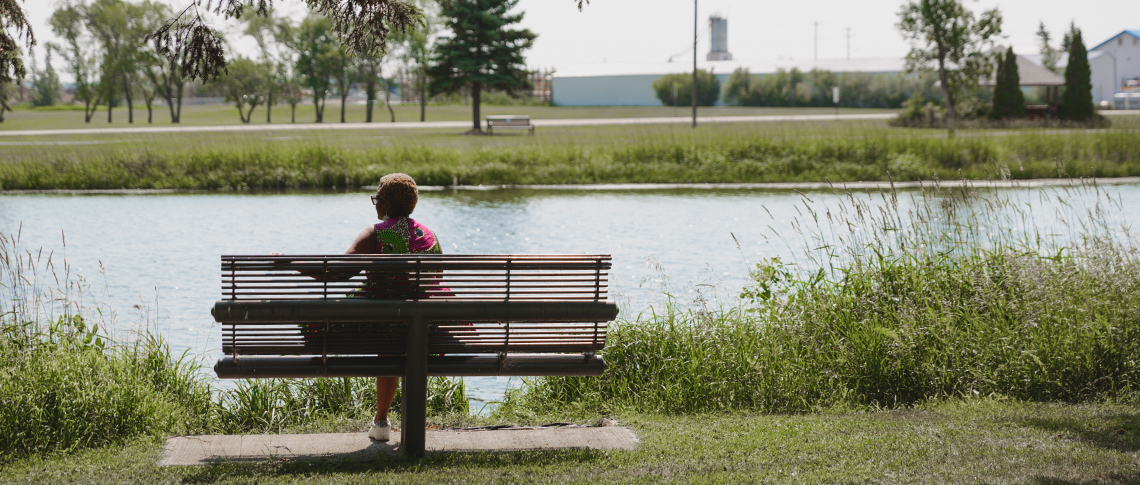

Healthcare is a rewarding field that can also have its challenges. Mental health professionals have supports available to them through Alberta Health Services and Recovery Alberta, which are available to all employees when and where they need them. These supports include mental health services covered in all benefits packages, peer support services, and an Employee and Family Assistance Program (EFAP), which also covers six counseling sessions.
Shayla, is a Child and Adolescent Mental Health Therapist for Recovery Alberta based in Vegreville, Alberta, and shared her experience with us.
How do you manage your own self-care as a healthcare provider?
I am a therapist who is proud to have my own therapist. I think everybody could use another person to talk to regardless of what you do. It took me a while to realize that. So often in helping professions, we are good at helping everybody else, but not ourselves.
What else do you do to take care of your own wellbeing?
In the summer, I barely drive, I walk everywhere. When I don't have things after work, I walk to and from work, and after work to things that I wouldn't be able to do in a city. And even during lunch, sometimes I DO take my walks, and come back to work. So that is really part of my self-care, being active and taking care of myself, and being connected to people that matter, whether it's friends or family.
What do you think is so grounding about that for you?
I like to say, “You nurture yourself through nature – nature and nurture.” When you're walking, you’re mindfully connected to the birds that are chirping and the green grass, and even the cars that are passing by because you don't have to worry about the driving piece. But it's really those small things.
I love living in a rural community. I think it's the best place to raise kids. And in a rural place, there's not just a sense of community, but the lifestyle is slow enough for you to know, to be involved in whatever your children are doing. It’s safe. My kids can ride their bikes to the park, and I don’t worry about them the same way I would in a larger city. And everybody knows each other. And from my own upbringing, that's the community collective all being style that I'm used to. It feels like home.
How does working where you do contribute to your personal life’s balance?
Living in a small town, I’m able to run errands, go to the bank, for example, on my lunch. It’s easier to balance everything when it’s all closer. Working at AHS also helped my career progression, as I was able to get the clinical hours I needed to be able to upgrade my designation from a social worker to a clinical mental health therapist.
How would you describe the workplace environment?
This organization is very open to diversity. When I came to this job, I remember I had my dreadlocks. That is not something that I would have done in the past, because I think that being an immigrant and being in a new country, there's always some silent mannerisms and behaviors that you learn, that you sometimes assume that you need to be. And so that assimilation process sometimes does become people's identities. So, for me, to be able to show up as me and not feel like I need to be wearing a wig to be me, has been the best gift of working in AHS. I’m wearing an African dress as we speak and I wearing earrings that somehow speak to who I am as a person. I think that I wouldn't be able to do the work that I do if I wasn't given the space to be who I am. And I think that is the best gift that any employee can receive is to be yourself.
What would you say to other health professionals about practicing self-care?
I say it’s important that we’re able to practice what we preach when we are doing the work because we obviously encourage our clients to be to take care of themselves. So, modeling the same things that we recommend for our own clients I think is the best way that I can say that's how I practice my self-care.
Learn more about employee supports available on our Employee Benefits page.